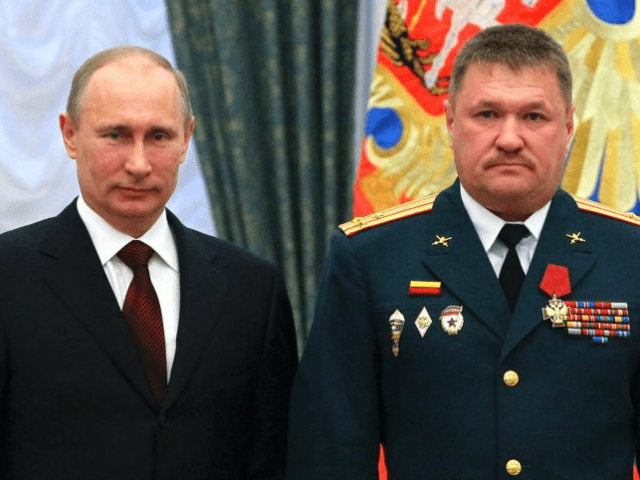The U.S.-backed Syrian Democratic Forces, a militia alliance led by the Syrian Kurds, claims Russian warplanes bombed their positions in the Deir al-Zor province on Monday.
Russia has denied the allegations, while U.S. commanders said they could not verify the source of the attack on the SDF.
Reuters notes that the SDF positions in question were near a natural gas field recently captured from the Islamic State.
“Russian airstrikes and mortar fire hit the Conoco gas plant where a large number of our forces are stationed,” SDF spokesperson Lilwa Abdallah said. The Conoco field has been described as the largest natural gas field in Syria.
“We will not stand by with our arms crossed, and we will use our legitimate right to self-defense,” read a statement from the Syrian Democratic Forces, describing the alleged Russian and Syrian regime bombing as a “treacherous attack against our forces.”.
The SDF has been waging fierce battles against both ISIS holdouts and the elements, as the key province of Deir al-Zor is ravaged by sandstorms. Also, the Islamic State has a habit of setting oil wells on fire as it falls back from its positions.
Meanwhile, Syrian Army forces supported by Russian air power and Iran-backed militias are closing in on the same positions, seeking to capture gas and oil fields before the Kurdish alliance can occupy them.
“Tensions between the SDF and the Syrian army in Deir ez-Zor province have been high after several reported incidents between them,” the Kurdish Rudaw news agency reported on Friday, noting that Syrian Army units claim to have taken fire from SDF positions, and the Russians have stated they would retaliate against further attacks.
On Sunday, the highest-ranking Russian officer killed in Syria, Lt. General Valery Asapov, was reportedly felled by a mortar attack on a Syrian Army command post where he was helping Syrian commanders plan to recapture the city of Deir al-Zor from ISIS. Russian Deputy Foreign Minister Sergey Ryabkov angrily blamed the United States for Asapov’s death.
“The death of the Russian commander is the price, the bloody price, for two-faced American policy in Syria,” Ryabkov said. “The American side declares that it is interested in the elimination of ISIS … but some of its actions show it is doing the opposite and that some political and geopolitical goals are more important for Washington.”
The gist of Ryabkov’s criticism is that the United States is making the Syrian situation worse by standing by allied groups opposed to the Russian-supported regime of Bashar Assad, giving ISIS the opportunity to mount the mortar attack that killed Asapov. The Russians have insinuated that the United States might even be coordinating with the Islamic State to slow the advance of the Syrian army.
The SDF declared on Saturday that it has formed a civilian council to govern the province of Deir al-Zor, with one hundred tribal leaders set to meet and elect permanent members of the administrative body. The council will then begin working on returning displaced residents to the area.
This announcement is not likely to be well-received in Damascus, Moscow—or Ankara—since the Turks are deeply concerned about Kurdish territorial expansion along their borders. It’s all part of what the Washington Post describes as the “endgame” of the Syrian Civil War, which is really just the prelude to a new lower-level conflict that could drag on for years into the future, as the Assad dictatorship asserts the most control over Syrian territory it has enjoyed in over five years, but the areas it does not control are divided between factions that refuse to recognize the authority of the regime.
As the largest of those groups, the Kurds can expect tensions with the Syrian military and its Russian backers to grow, as all parties converge on the last remnants of the Islamic State. The Kurds were America’s front-line proxy against the Islamic State throughout its hideous existence. If they call in their markers with Washington amid hostilities with Moscow, Damascus, and Ankara, the new phase of the Syrian conflict could grow as complex and dangerous as the last one was.

COMMENTS
Please let us know if you're having issues with commenting.